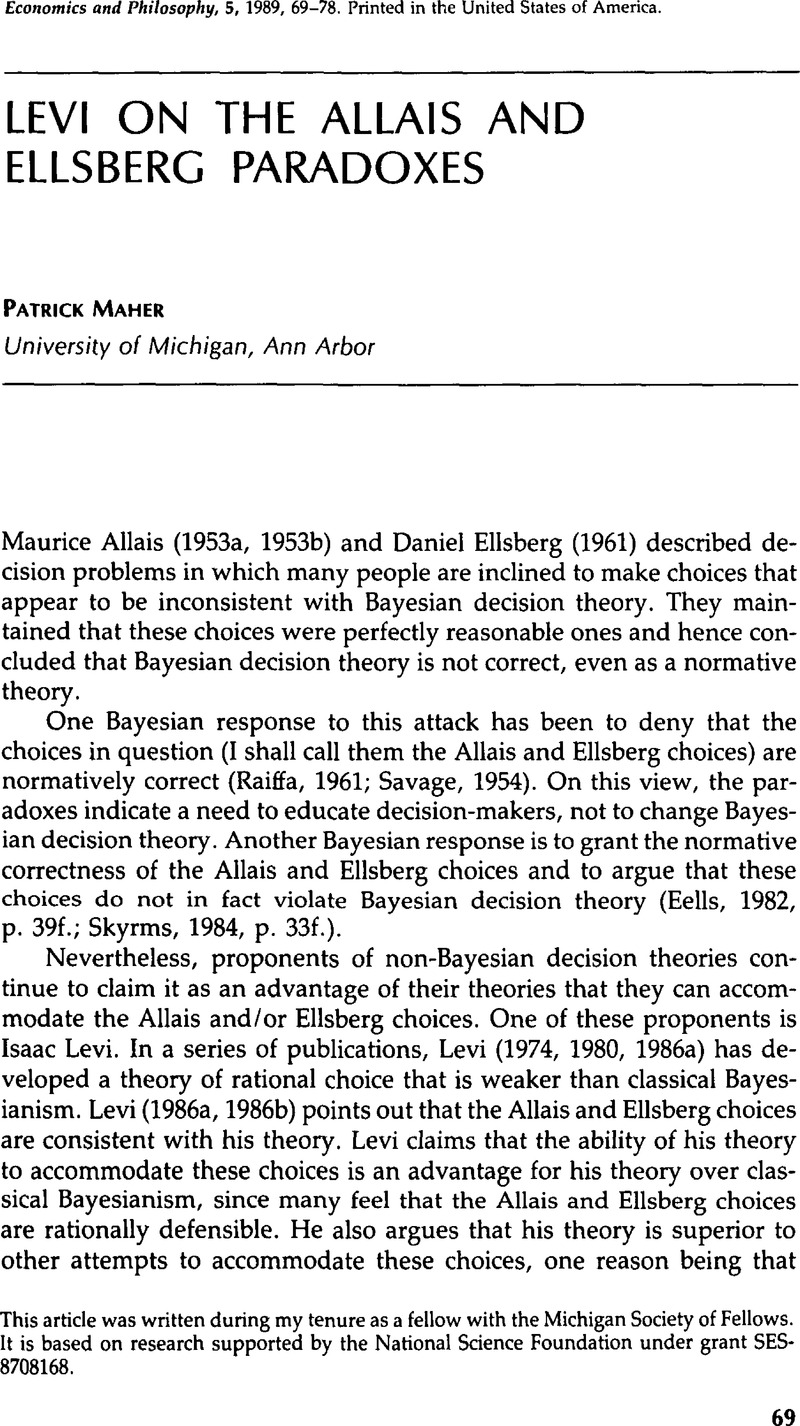Crossref Citations
This article has been cited by the following publications. This list is generated based on data provided by Crossref.
Levi, Isaac
1989.
Reply to Maher.
Economics and Philosophy,
Vol. 5,
Issue. 1,
p.
79.
Maher, Patrick
and
Kashima, Yoshihisa
1991.
On The Descriptive Adequacy of Levi's Decision Theory.
Economics and Philosophy,
Vol. 7,
Issue. 1,
p.
93.
Levi, Isaac
1991.
Reply to Maher and Kashima.
Economics and Philosophy,
Vol. 7,
Issue. 1,
p.
101.
Steil, Benn
1993.
Corporate foreign exchange risk management: A study in decision making under uncertainty.
Journal of Behavioral Decision Making,
Vol. 6,
Issue. 1,
p.
1.
Hansson, Sven Ove
2009.
Measuring Uncertainty.
Studia Logica,
Vol. 93,
Issue. 1,
p.
21.





